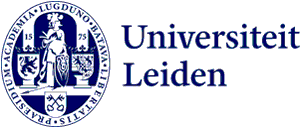
Get more out of your studies by participating in FGGA's Honours Programme: ‘You really learn a lot’
In FGGA's Honours Programme, students work on various societal challenges. Would you like to take part in the programme, but are you still in doubt whether it is something for you? Annette Righolt, Honours Coordinator at FGGA, and Mira Basta, Public Administration student, tell you more.
Today's societal challenges require new thinkers, experts and public leaders to solve crises effectively. In FGGA's Honours Programme, you develop both theoretical and practical skills to tackle these challenges. Annette says: ‘You get to work in a group with students from all kinds of different disciplines on themes such as public administration, security, law and equality. There is also plenty of room to experiment and gain practical experience, for example by doing an internship.’
Who can apply for the Honours Programme?
The Honours Programme is intended for students who want to broaden their knowledge outside their studies and further develop their own skills. Righolt: ‘There are several admission requirements, including a grade point average in your first year. My advice to students is to apply especially if you are interested, even if you are not sure yet whether you meet the average. Together, we will see if you meet the requirements and thus whether you can participate in the programme.’
Mira chose to apply for the Honours Programme because her interests were broader than just Public Administration: ‘For example, through Honours I learn more about the European Union and leadership. These are subjects that are not covered as much in Public Administration.’
‘You get to choose which courses you take, which means you can go in all sorts of different directions.’
Developing theoretical and practical skills
During the Honours Programme, much attention is paid to developing your theoretical and practical skills. An example of this is the subject of negotiation: ‘We notice that students find it difficult to negotiate on the job market. In the Honours Programme, we teach students to negotiate in a playful way, which helps students find out what their style is and how to approach negotiation.’
Mira agrees on the usefulness of this subject: ‘Negotiating is a skill I haven't learnt much about in Public Administration. Through Honours, I learnt a lot about negotiating and about debating, because we practised it a lot as well: gradually you find out how to do it. This eventually came in handy during my studies, where we also have to debate a lot during various courses.’
‘You really learn a lot’
The Honours Programme is a way for students to discover what you like, Mira explains. ‘You get to choose which courses you take, which means you can go in all sorts of different directions. For example, I want to take a course in quantum mechanics. I find it a very interesting topic, but I wouldn't want to study it in its entirety. I really like the fact that Honours does give me the chance to do something with this.’
Mira would recommend other students to apply for the Honours Programme: ‘You really learn a lot from it and besides that you also get to know a lot of new people. The language of the programme is English, but don't let that scare you off. The level is manageable, and the teachers know that English is not everyone's first language.’
Annette adds: ‘I advise students who want to become more confident to apply. We focus a lot on academic knowledge and skills, but knowledge about yourself is just as important in the programme. It helps enormously to learn more about yourself through Honours and besides, it looks good on your CV.’
Text: Nadine Louissen
Do you want to know more about the Honours Programme or do you have any questions? Then visit the information meeting on 23 November.
